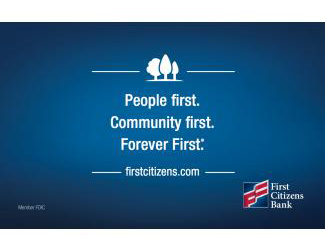
What’s the difference between a good leader and a great one? When it comes to entrepreneurship, successful small business owners have certain qualities that serve them and their business. The reality is most entrepreneurs aren’t born with these characteristics but acquire them over time. The ability to communicate a compelling vision, adapt to change, and build relationships are three qualities that successful small business owners share. This article outlines the importance of each quality and how you can develop these traits for yourself.
Clear Vision
A compelling vision is like a magnet that attracts the right people. In an age where hiring and retaining top talent matters more than ever, the ability to share your vision is a difference maker. Humans naturally want to feel inspired and to connect to something bigger than themselves. Unfortunately, many employees have no sense of their company’s vision. They simply show up, do their work, and go home. Successful business owners have a vision that excites and inspires their employees.
What makes a vision compelling? According to Building Champions, an Oregon executive coaching firm, casting a clear vision requires asking yourself the three Bs:
» Belong. What do you want your team members to belong to? Your answers are tied to your convictions and sense of purpose.
» Become. What’s your ideal version of your company? Your vision asks you to see the future and imagine the story of your ideal brand, business systems, partnerships, employees, and reputation.
» Build. What do you need to work on? Rather than short-term, your business ambitions should sync up with the story of who you want to become.
Building Champions offers a free Vision Tool for leaders ready to do the work of vision casting.
Adaptability
One thing business owners know is that nothing stays the same. The ability to pivot and innovate is a hallmark of businesses that survived the pandemic and a common denominator for the ones that thrived.
Adaptability isn’t a trait that comes naturally to everyone. Yet, as a leader it’s essential. Monica Thakrar, President of MTI, a leadership and mindfulness training, coaching and consulting firm based in Washington DC, believes adaptive leaders know how to do these things:
- Leverage diversity to remain flexible and open to different perspectives
- Continuously learn new ways of thinking inside and outside of their specific industry
- Create an environment of psychological safety, where others feel comfortable sharing their views and opinions without judgment
- Practice emotional agility with the help of supportive relationships, self-awareness, and optimistic mindsets.
If you don’t feel like an adaptable leader today, Thakar recommends starting by developing self-awareness around how you deal with setbacks. Are you able to learn from them or do they create unhelpful judgment or blame? She also encourages leaders to build relationships with peers who can provide support when things get tough. Thakar reminds business owners that the time to build your adaptability muscles is today — so you’re ready when the next challenge arrives.

Builds Relationships
Successful entrepreneurs are good at building relationships. And that’s different from enjoying small talk, as evidenced by how many successful entrepreneurs describe themselves as introverts. Leaders who cultivate relationships with industry partners, employees, and customers know a simple truth: you can’t do business alone. Research has even shown that investing in relationships at work will make you happier.
Sam Kaufman, a business coach and Forbes’ contributor, recommends getting to know your team members on a personal level. According to Kaufman, one-on-one meetings are crucial for maintaining a positive, collaborative work environment. These meetings should focus on personal goals, family, and other topics important to the employee. Additionally, Kaufman coaches leaders to allocate a few minutes at the start of team meetings for personal updates to emphasize the value of life outside of work.
When it comes to external relationships, Kaufman says that sharing your life with your customers promotes closeness. Use your current systems like blog, email, or social media to share your business story, updates on projects, and profiles of employees.
The Takeaway
There’s no one-size-fits-all approach to becoming a successful entrepreneur. Being a good leader requires that you take time to hone skills specific to your personal and professional growth. With persistence and practice, anyone can become an excellent leader capable of innovating around challenges and inspiring others along the way.
Last modified: August 22, 2023



















